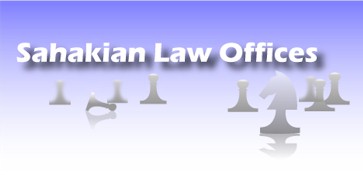|
We
are proponents using
collaborative partnering arrangements to generate competitive advantage.
Our favorite type of partnering is Customer Partnering.
Customer
Partnering is a unique type of partnering. It is the most important
kind of partnering... dealing with the most critical relationships
you have... your customer relationships.
It
is a way to acquire new customers and defend existing customers
from the predation of competitors. You can use it to deliver more
value, while protecting and improving your margins.
It's
also a way to rechannel the negotiating process into a joint planning
process. Why not replace negotiation with a joint planning process
to design yourself into your customer's business plan?
Why
negotiate when you can plan together? Develop a joint plan. The
goal is to create a 1 + 1 = 3 effect. By improving coordination
and communication between companies, you can improve quality, cycle
time, efficiency, and costs. When you do this right, you modify
your organization and operations to better match the needs of your
customer, and your customer modifies their organization and operations
to better match the capabilities and needs of yours.
Both
vendor and customer gain mutual competitive advantage by (a) increasing
the net value delivered by both parties to the customer's customer,
and/or (b) increase the cumulative cost effectiveness of the coupled
business systems.
Generating value is the first step. The second step is positioning
yourself to capture your fair share of that new value.
Some
of the value will be captured by the supplier in the form of increased
margins or sales volume. Some
will be captured by the customer. The value can be in the form of
better product for the customer's customer, increased profit margins,
or improved competitiveness.
Who
captures how much of the new value?
A
lot depends on the plan you build. What kind of switching costs
does each party face? How unique is your product or service? What
percentage of business does each party represent to the other? What
is the customer's ability to backward-integrate or substitute alternatives?
The answers to a lot of these questions are determined by how you
plan the negotiations.
Here
is one example: Toyota is famous for the close and extensive partnering
it does with its suppliers... but it maintains so much leverage
in these relationships that it captures all the value generated
by the relationship. It leaves very little on the table for its
suppliers.
Here
is a second example: Microsoft. Most people don't consider themselves
Microsoft's partners, but if they look around and ask some questions
they will find that they have in fact made substantial modifications
to their business processes to accommodate this key supplier and
its business processes. Microsoft has managed to build itself into
the business plans of most of its customers. In this case, it captures
most of the value generated. It leaves very little on the table
for its customers.
Most
customer partnerings come to rest somewhere in between there two
extremes.
We
have developed a step-by-step methodology for (a) developing a business
plan with a customer that generates new value, (a) creating a place
in that plan for your company, and (b) ensuring that you capture
your fair share of that value.
In
"Customer Partnering - An Executive Guide to Key Practices"
by Curtis E. Sahakian we explain how to implement this methodology.
For
more information:
You
can order by phone at 1-800-948-1700 or on-line:
Or
contact us to see if we can help you implement a customer partnering.
|



